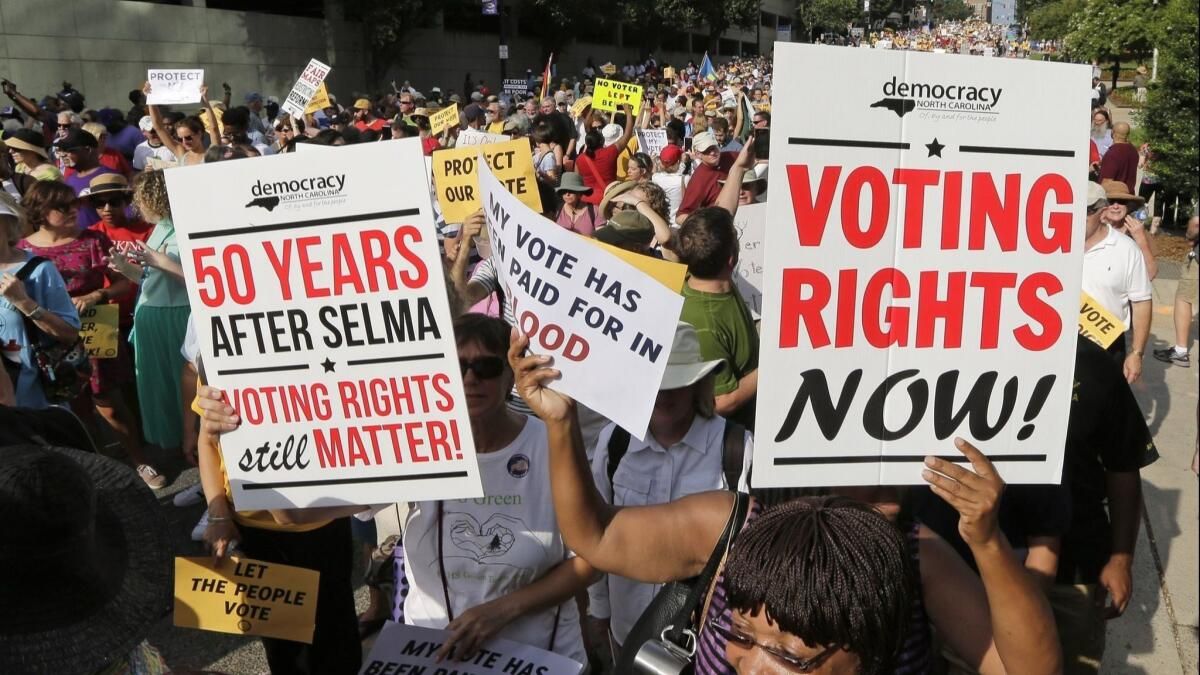
Voting rights have shaped societies and governments for centuries. Ever wondered how these rights evolved and what they mean today? Voting rights are the legal entitlements that allow individuals to participate in choosing their leaders and shaping policies. These rights have a rich history filled with struggles, triumphs, and ongoing challenges. From ancient Greece's early democratic practices to the suffrage movements of the 20th century, the journey of voting rights is both inspiring and complex. Understanding these rights helps us appreciate the importance of every vote and the power it holds. Let's dive into 38 intriguing facts about voting rights that highlight their significance and evolution.
Key Takeaways:
- The history of voting rights is a story of progress and struggle, from ancient Greece to modern-day challenges like voter ID laws and mail-in voting.
- Marginalized groups, including women, African Americans, and indigenous peoples, have fought for their right to vote, and the future of voting rights may involve technology like blockchain and artificial intelligence.
The History of Voting Rights
Voting rights have evolved significantly over time. Many struggles and milestones have shaped the way people vote today.
- Ancient Greece: The concept of democracy began in ancient Greece around 508 B.C. However, only free male citizens could vote.
- Roman Republic: In ancient Rome, voting was limited to male citizens who owned land.
- Magna Carta: Signed in 1215, this document laid the foundation for parliamentary democracy in England.
- Colonial America: Early American colonies allowed only white male property owners to vote.
- U.S. Constitution: Ratified in 1788, it left voting regulations to individual states, often restricting voting rights to white male property owners.
Expanding Voting Rights in the 19th Century
The 19th century saw significant changes in voting rights, particularly in the United States.
- Jacksonian Democracy: By the 1820s, many states had dropped property requirements, allowing more white men to vote.
- 15th Amendment: Ratified in 1870, it prohibited denying the right to vote based on race, color, or previous condition of servitude.
- Women's Suffrage Movement: Began in the mid-19th century, advocating for women's right to vote.
- Wyoming: In 1869, Wyoming became the first U.S. territory to grant women the right to vote.
- Seneca Falls Convention: Held in 1848, it was the first women's rights convention, marking a significant step toward women's suffrage.
The 20th Century: A Century of Change
The 20th century brought monumental changes to voting rights across the globe.
- 19th Amendment: Ratified in 1920, it granted American women the right to vote.
- Indian Citizenship Act: Passed in 1924, it granted U.S. citizenship and voting rights to Native Americans.
- Civil Rights Movement: In the 1950s and 1960s, activists fought to end racial discrimination in voting.
- Voting Rights Act of 1965: This landmark legislation aimed to eliminate racial discrimination in voting.
- 26th Amendment: Ratified in 1971, it lowered the voting age from 21 to 18 in the United States.
Voting Rights Around the World
Different countries have unique histories and milestones regarding voting rights.
- New Zealand: In 1893, New Zealand became the first country to grant women the right to vote.
- United Kingdom: The Representation of the People Act 1918 gave voting rights to women over 30 and all men over 21.
- South Africa: The end of apartheid in 1994 marked the first time all South Africans could vote regardless of race.
- Saudi Arabia: Women were granted the right to vote and run for office in 2015.
- Switzerland: Women gained the right to vote in federal elections in 1971.
Modern Challenges and Developments
Even today, voting rights face challenges and continue to evolve.
- Voter ID Laws: Some countries and U.S. states have implemented voter ID laws, sparking debates about accessibility and fraud prevention.
- Mail-in Voting: The COVID-19 pandemic led to a significant increase in mail-in voting in many countries.
- Felon Disenfranchisement: In some places, individuals with felony convictions are barred from voting, though reforms are ongoing.
- Youth Voting: Movements to lower the voting age to 16 have gained traction in several countries.
- Digital Voting: Estonia became the first country to offer internet voting in national elections in 2005.
Interesting Facts About Voting Practices
Voting practices vary widely and can be quite fascinating.
- Australia: Voting is compulsory, and citizens can be fined for not voting.
- India: The world's largest democracy, with over 900 million eligible voters.
- Brazil: Electronic voting machines have been used since 1996.
- Iceland: Voter turnout is consistently high, often exceeding 80%.
- North Korea: Elections are held, but there is only one candidate per position, making the process largely symbolic.
Voting Rights for Marginalized Groups
Marginalized groups have often faced significant barriers to voting.
- African Americans: Despite the 15th Amendment, many faced literacy tests, poll taxes, and intimidation until the Voting Rights Act of 1965.
- Women: Suffrage movements worldwide fought tirelessly for women's voting rights.
- Indigenous Peoples: Many indigenous groups were denied voting rights until the mid-20th century.
- LGBTQ+ Community: While not explicitly barred, LGBTQ+ individuals have faced discrimination that impacts their voting rights.
- Disabled Individuals: Accessibility remains a challenge, though laws like the Americans with Disabilities Act aim to improve voting access.
The Future of Voting Rights
Looking ahead, voting rights will continue to evolve with technology and societal changes.
- Blockchain Voting: Some propose using blockchain technology to secure and verify votes.
- Global Suffrage Movements: Activists continue to fight for universal suffrage in countries where voting rights are restricted.
- Artificial Intelligence: AI could play a role in ensuring fair and transparent elections in the future.
The Power of Voting Rights
Voting rights shape our society. They ensure everyone has a voice in decisions that affect daily life. From the 15th Amendment granting African American men the right to vote to the 19th Amendment empowering women, each milestone has strengthened democracy. The Voting Rights Act of 1965 tackled racial discrimination, making the process fairer.
However, challenges remain. Voter ID laws, gerrymandering, and disenfranchisement still pose threats. Staying informed and participating in elections is crucial. Every vote counts, and each one contributes to a more inclusive society.
Understanding the history and current state of voting rights helps us appreciate the progress made and recognize the work still needed. By exercising this fundamental right, we honor those who fought for it and pave the way for future generations. So, get out there and make your voice heard!
Frequently Asked Questions
Was this page helpful?
Our commitment to delivering trustworthy and engaging content is at the heart of what we do. Each fact on our site is contributed by real users like you, bringing a wealth of diverse insights and information. To ensure the highest standards of accuracy and reliability, our dedicated editors meticulously review each submission. This process guarantees that the facts we share are not only fascinating but also credible. Trust in our commitment to quality and authenticity as you explore and learn with us.


